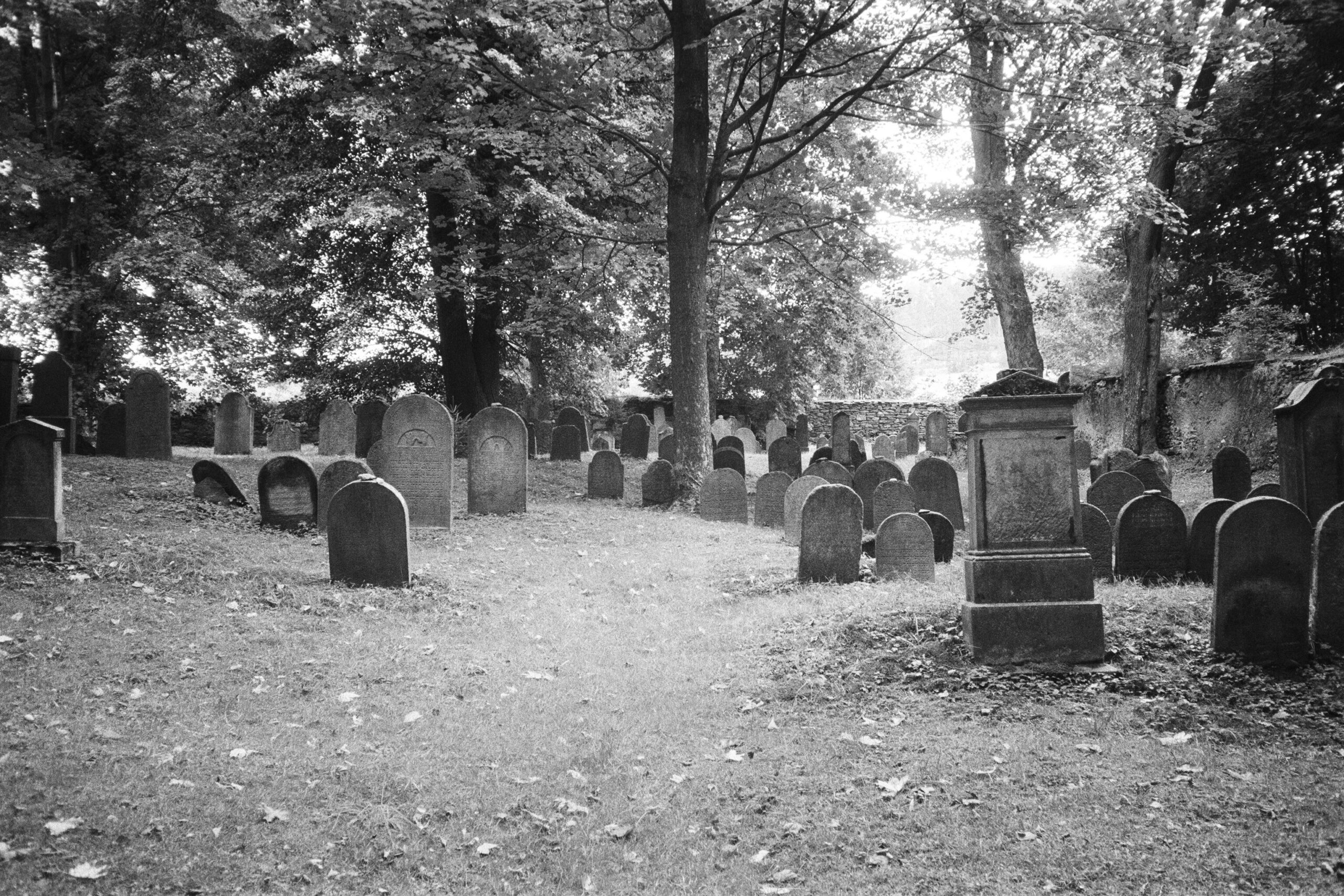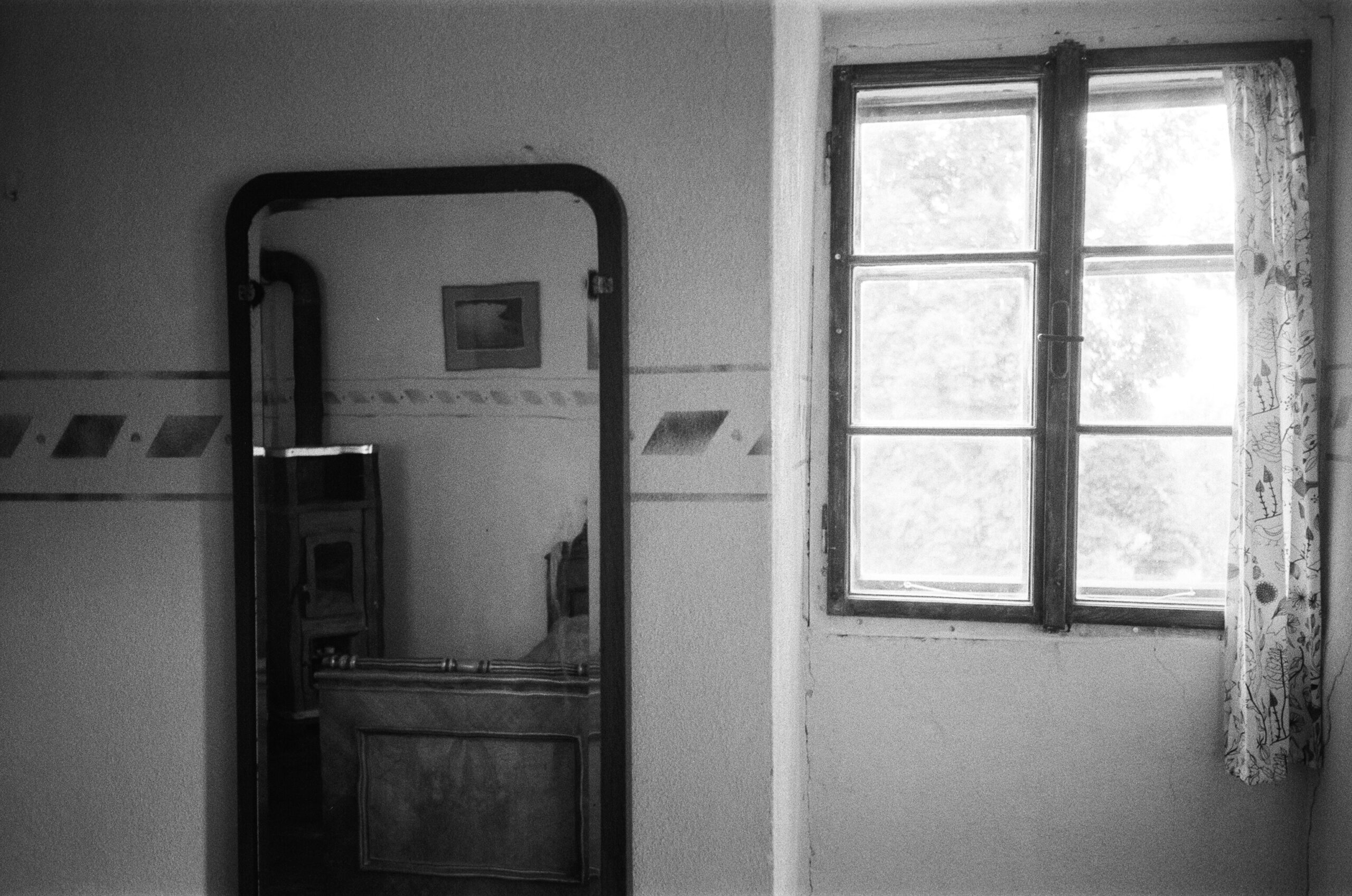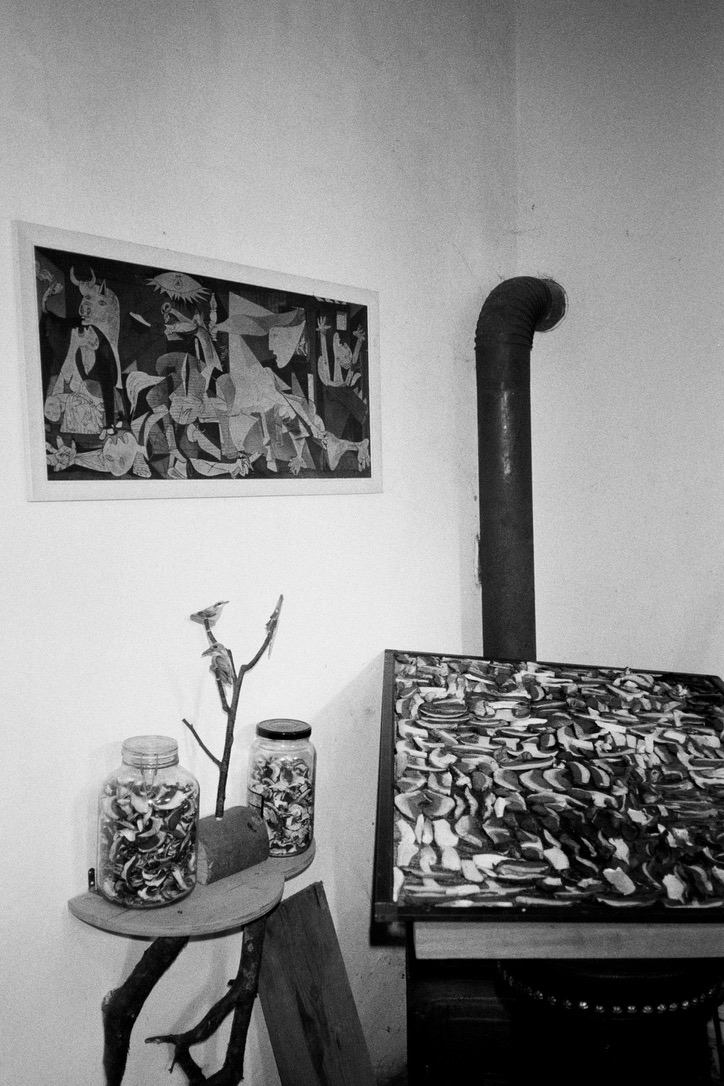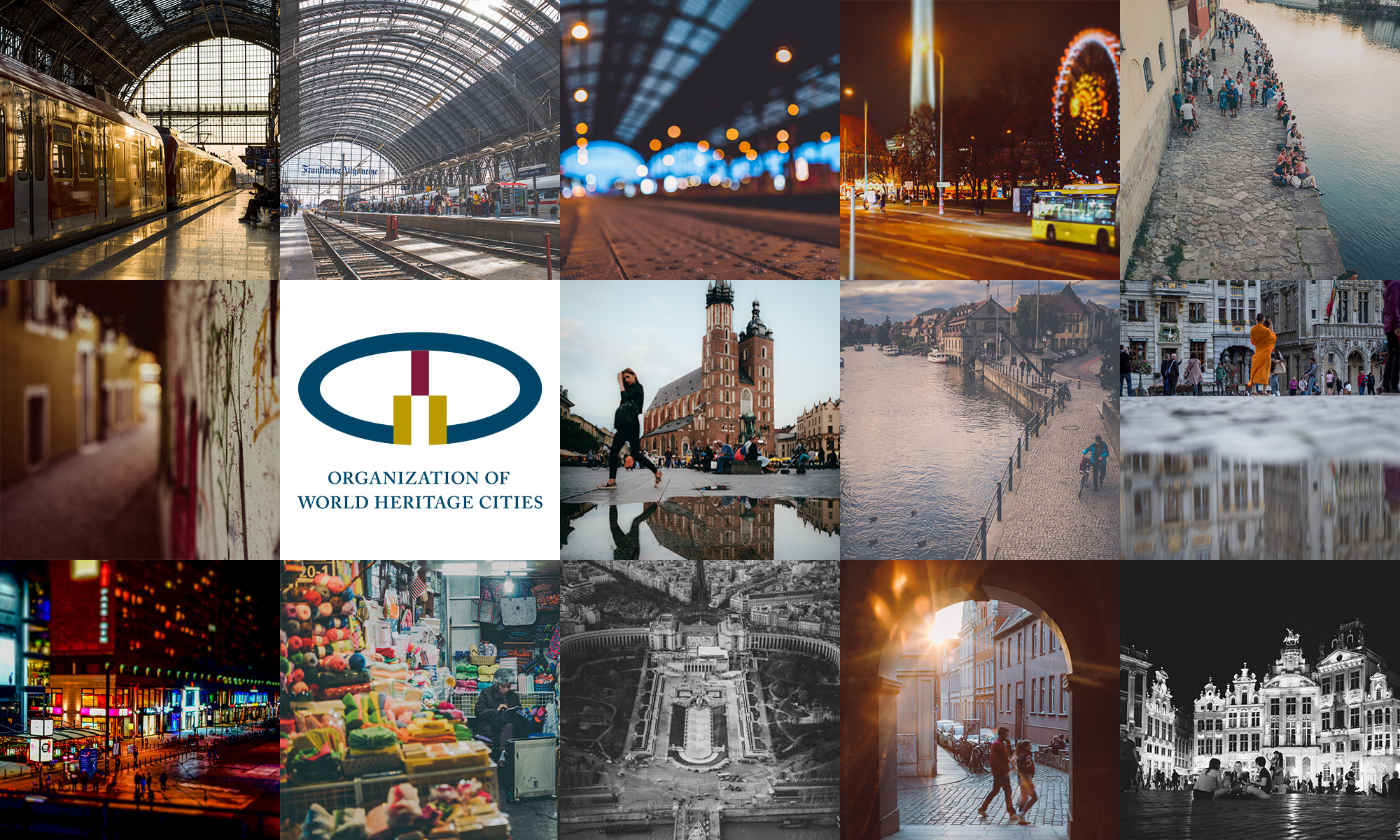My hosts in Elbančice, Marcel and Katarina, are mad about collecting mushrooms. Every spare inch of their stone house is filled with mushrooms laid out in various stages of cleaning or drying. The green of the billiard table is barely visible beneath all the mushrooms: chanterelles, oysters, porcini. Baking sheets are propped up precariously on the wood stove and the chairs, so that you have to tip toe everywhere. The cats are hissed at whenever they come too close to the mushrooms.
When I meet Katarina out in the forest in her red raincoat, she looks very guilty.
‘I promised I’d be quick today, she says. ‘Yesterday I was out in the forest for the whole day. Marcel was mad.’
She can’t help herself: even as we talk, her eyes move over the ground. She knows exactly where to look. Hřib Smrkový like the roots of silver birches, Liška Obecná prefer ditches. She gave up being secretive a long time ago, she tells me. There’s more than enough to go around. That’s what you come to realize as soon as you start to really look. She tells me about cars that she sees which are sagging under the weight of mushrooms, cars so full that their driver is no longer visible. She holds each mushroom to my nose so I can smell its delicate perfume.
When I wake up in the morning, the wood stove in the corner of my room has gone out, and sun shines into the room through the small window. Beyond the fields, red pines bow deeply with every gust of wind. The clouds move quickly. Rain falls for a few minutes at a time, then stops again. When I go downstairs, I find a bowl of mushrooms, eggs, tomatoes and butter on the table.
I make breakfast, drink a cup of coffee and walk down to the old Jewish cemetery. Many trees have grown into and around the graves. On the edges of the cemetery, near the low walls, wild strawberries grow. Between the graves, mushrooms.



